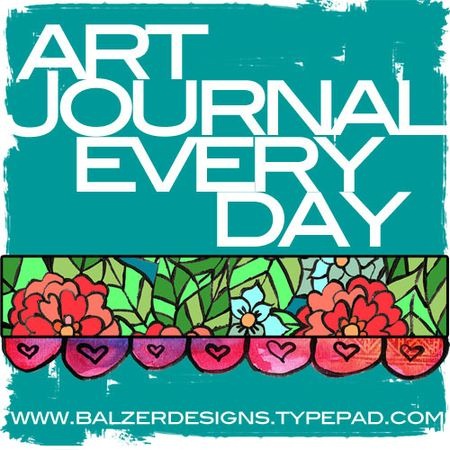You know how you buy a new car and suddenly you start seeing that same car everywhere you go? Logically, you realize that it’s only because you’ve started paying attention, but it’s still a little eerie how you never noticed it before? That’s the feeling I’m having about indie publishing right now. I feel like I keep walking into the middle of conversations that assume that indie equals poor quality. A lot of times, I just turn around and walk back out, but I thought that it might make an interesting discussion. And so here we go.
Two posts I read yesterday started me down this line of thinking. Liz Hellebuyck blogged about a disappointing self published book she read and she questioned whether self publishing is just a way for people to bypass the editing process. There is interesting discussion in the comments section about it. Larry of storyfix.com posted a reality check that has almost the same point as Liz. In short, and I’m paraphrasing wildly here, the point seems to be that a worthwhile author is one who is vetted by the established system of traditional publishing.
I’ve never submitted anything through a traditional route. I have no idea if I have the stuff it takes to make a living as a NY published author. I’ve also never been rejected so I don’t know that I don’t have what it takes either. What I know about traditional publishing makes it seem like a really poor choice for me though, given my goals.
What are my goals, you ask? Well, for starters I want to earn a living. I love the process of world building and of coming up with interesting premises. I even enjoy creating well rounded characters with needs and conflicts. Writing itself isn’t as thrilling, but I enjoy it well enough. Polishing a finished manuscript? Coming up with a workable outline to write from? These things aren’t nearly as much fun. In fact, they feel suspiciously like work. Work that I want to be paid for if I’m going to take these steps.
Writing is a funny business. Most jobs pay you as you do the work. Writing is a huge gamble. You can work as hard, if not harder than, other writers and still not get paid for what you do. You have to query agents in the hopes that one might possibly take a chance to read your work. Getting an agent isn’t even a guarantee that your work is going to see the light of day. I read an interesting blog post that outlined some reasons why your manuscript might be passed over. One of the examples given for one pass was that the MC had the same name as his ex girlfriend. Subjective doesn’t even begin to cover it.
Let’s say though, that your manuscript is accepted for publication. I’ve read multiple places that if everything goes well for you, the soonest you can reasonably expect to see your book on shelves is 18 months after you’ve finished writing it. That’s a long time. So much can happen in a year and a half. The novel that was written with a finger on the pulse of industry trends could be woefully out of date by then and with the instability of brick and mortar stores in the past year or so, it’s even possible that your book might not even make it to print at all if dead weight needs to be cut. And even if all goes according to plan, that’s 18 months that your book is tied up without you making any money from it.
There is a stigma attached to indie publishing. The popular opinion is, if a book were any good, it’d have been picked up by a real publishing company. That’s something I think indie authors are going to be fighting for a long time. It’s been ingrained into us that our work is worthless unless we get validation from New York. The thing is, I’m sure everyone has heard the stories of how some of the best selling novels of all time were rejected at one point. The Big 6 aren’t infallible. They also aren’t the ones who determine which books become bestsellers. The readers do that.
If I self publish my book (which I hope to do in the next month or two) and it sells well and earns enough money for me to live comfortably, do you really suppose I’ll be feeling sorry for myself because it’s not a NY vetted and published book? Hell, no. My definition of myself as a successful author doesn’t hinge on that validation. Indie published money spends just as well.
Another goal I have is to be able to tell the kind of story I want to tell. I have a friend who is faced with choosing between doing a serious rewrite which would change her book to something else entirely or keeping it as it is and hoping she can find an agent who will work with it. The reasoning is, of course, can we sell this type of story to a publisher? There’s no thought given to whether it’s the kind of story that readers would buy at this stage of the game although I’m sure it’s a consideration on the publisher’s end.
Traditional publishers work under pressure that just doesn’t exist as an indie publisher. They have to deal with physical copies of books that need to be shipped from place to place and stored. They are constantly printing new books so the old ones have to move ASAP to make room for the new ones. When you are dealing exclusively with ebooks and POD though, this isn’t a consideration. I can upload a book tomorrow and have it up for the next 50 years without any pressure to sell anything. If it takes awhile to find an audience, that’s ok. Because eventually it will and when it does, whether it’s the same day or 10 years later, it’s not costing me anything to store it.
That’s what really negates the arguments that traditional publishers can do more to promote your books. Traditional publishers have to do what they can to push your book and sell it as fast as they can. If they even put forth the effort. J. A. Konrath is a vocal supporter of indie publishing and a pretty amazing success story in his own right. He started out his career (after a pretty lengthy string of rejections) as a NY published midlister. He blogged about some of his efforts at self promotion when his publisher wouldn’t back him financially for a book tour. He booked his own signings over the course of 55 days at, I believe it was 90 different stores. He also did a library campaign and mailed press release info to 7000 different libraries. Remember, this is a traditionally published author doing this himself.
The fact of the matter is that when people talk about the clout that NY publishers have with promotion, they are really thinking of the Twilights, Harry Potters, and other mega bestselling books. There is no telling how many published authors there are, but any one person only knows about a handful of them. Everyone knows who Stephen King is, but how many people know about Anthony O’Neill? He’s also published by Scribner, the imprint who put out SK’s Full Dark, No Stars. But until I did a search to see what other horror writers Scribner works with, I hadn’t heard a thing about him. Being published with a major publisher doesn’t mean you are going to get major publicity. More often than not, it’s going to fall on you to do your own publicity, but with the added pressure of knowing that if you don’t do a good enough job of pushing your book, there’s a very real possibility that your publisher will drop you because you are a sucking black hole of lost revenue.
As an indie publisher, I’m going into this thing knowing that the only person who is going to promote my books is me. But I also know that I’m in it for the long haul. Sure, I want to reach people as fast as I can. I want to hear reviewers buzzing over my work and see message boards lit up like a Christmas tree as they discuss my characters as much as anybody else. The thing is, that it’ll happen. Even if it takes awhile for my books to catch on, I’m confident that they will. I’ll do some promotion, but mostly I’m going to worry about writing more books. I think that my time would be better spent that way.
Right now all writers stand on the cusp of something amazing. With eReaders being as readily available as they are now, every single author has a choice to make. They can continue the way things have always gone and give up creative control and the bulk of the profits to middle men or they can take charge of their careers and reach out directly to the reader. I can pay someone to edit my work, create a professional looking cover, format my manuscript, and even to write my back cover copy if I want to. I can produce a work that’s equal in quality to what any publisher out there can produce. But the main difference is that at the end of the day, as an indie publisher I’m the one bringing home the lion’s share of the profits. 70% vs 17% royalties per book for the exact same amount of work.
One last thing to consider before I wrap up this exceptionally long winded tirade. I think everyone has heard of Amanda Hocking by now. She’s getting mainstream coverage and 3 of her books are now included on a national bestseller list. She’s an exception. Most indie publishers won’t see success like that, but quite a few are getting recognition from publishers now and are being offered contracts based on the level of sales they’ve managed on their own. Indie publishing can be a stepping stone toward a more traditional career if that’s something you are seeking.
I think it’s worth noting how many traditionally published authors are seeking out indie publishing though. I just read an article about Alisa Valdes who was doing fine with trad publishers, but opted to go indie. There’s J.A. Konrath, as mentioned above and another similarly outspoken author in favor of self publishing, Dean Wesley Smith. There are others, but these are the ones that immediately came to mind.
I guess what I hope you take away from all this is that there are a lot of compelling reasons that an author might consider indie publishing instead of traditional publishing. To assume it’s the lazy way out is a little insulting. I respect the choices of my fellow writers, but I don’t think of someone as more accomplished or as a better writer just because they chose a different path than I did. I’m doing what I need to do to meet my professional goals and I assume that they are doing so too. I hope that we can all be supportive of each other and relate to each other’s struggles and not make assumptions without first considering both the pros and cons of the issue.









Thanks for the info and the pep talk…. I was in real need of just those things.
In Lak’ech Ala K’in